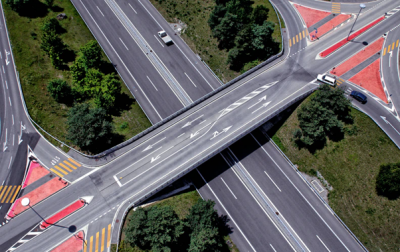
Cars and Covid: How the Pandemic Has Affected Transport and Travel
For over a year, the COVID-19 pandemic has been impacting the daily lives of billions of people around the globe. For many of us, it’s changed how we live, learn, shop, work, commute and travel. Interestingly, not all its effects have been negative.
Technology and science have been forced to rise to new challenges, as have many people. The environment enjoyed a brief respite as humanity slowed down, pumping out fewer greenhouse gases and pollutants. That environmental benefit was largely caused by a reduction in travel.
Let’s look more closely at the changes in transport and the car sector that occurred during 2020 around the globe.
Covid, car sales and takeaway curries
Passenger car sales dropped in China, the US and the EU, which saw a dramatic 24% drop as people increasingly left their car on the drive while working from home or furloughed. Car rentals, in turn, fell by a third in 2020.
In contrast, though, motorcycle registrations rose by nearly 12%. This might seem surprising, but industry experts agree this increase was fuelled by two needs: COVID-19-safe personal transport and a rise in demand for fast food delivery services, which predominantly use scooter and motorcycle couriers.
Rising popularity of motorcycles is borne out by data from Uber. The personal travel and courier giant saw a 74% reduction in bookings for its ride-hailing services last year as far fewer people needed a ride to the station or a lift back home after a night out. However, with restaurants and cafes closed for much of the year and many diners reluctant to venture inside them even when they were open, the company’s UberEats service, which offers home delivery of food from restaurant chains and independent eateries, enjoyed a 113% rise in orders in 2020.
Drive-through takeaway visits increased by 14%, and sales by 45%, for the same reasons: safety, convenience and, for many people, the desire for a break from the monotony of cooking and eating at home every day!
Fewer collisions, less carbon emissions
With fewer cars and lorries on the road and planes in the air, and various industries spewing out less pollution, there was a noticeable (although smaller than hoped for) benefit to the environment, especially in the first half of 2020 when many countries were in lockdown.
Global carbon dioxide emissions fell by 6.4% (2.3 billion tonnes) in 2020. And less traffic on the roads also meant fewer collisions and fewer total road deaths. However, in some countries, including the US and France, the collision fatality rate increased. Why?
In France, there was an upsurge of risky behaviour, including excessive speeding and ignoring red lights. A report by the US National Highway Traffic Safety Administration found similar behaviours, together with failing to wear seat belts and driving under the influence of drugs or alcohol, were much more common in drivers still on the roads during lockdown.
More than half of US dealerships also reported that owners were deferring car maintenance, so unsafe cars may have played a part too.
Safety fears have boosted solo travel
Unsurprisingly, data shows that all kinds of travel declined in 2020—and that more people chose to travel in their own car or by motorbike or bicycle rather than use public transport. While that’s understandable, with a fear of COVID-19 transmission bound to be uppermost in most travellers’ minds, overall, that trend may not be good news for the environment until more personal vehicles are electric.
As 2021 progresses, it will be interesting to see how the pandemic continues to affect our behaviour on the road, how we choose to travel, and what impact those decisions have on the environment.
More from Blue School Of Motoring: